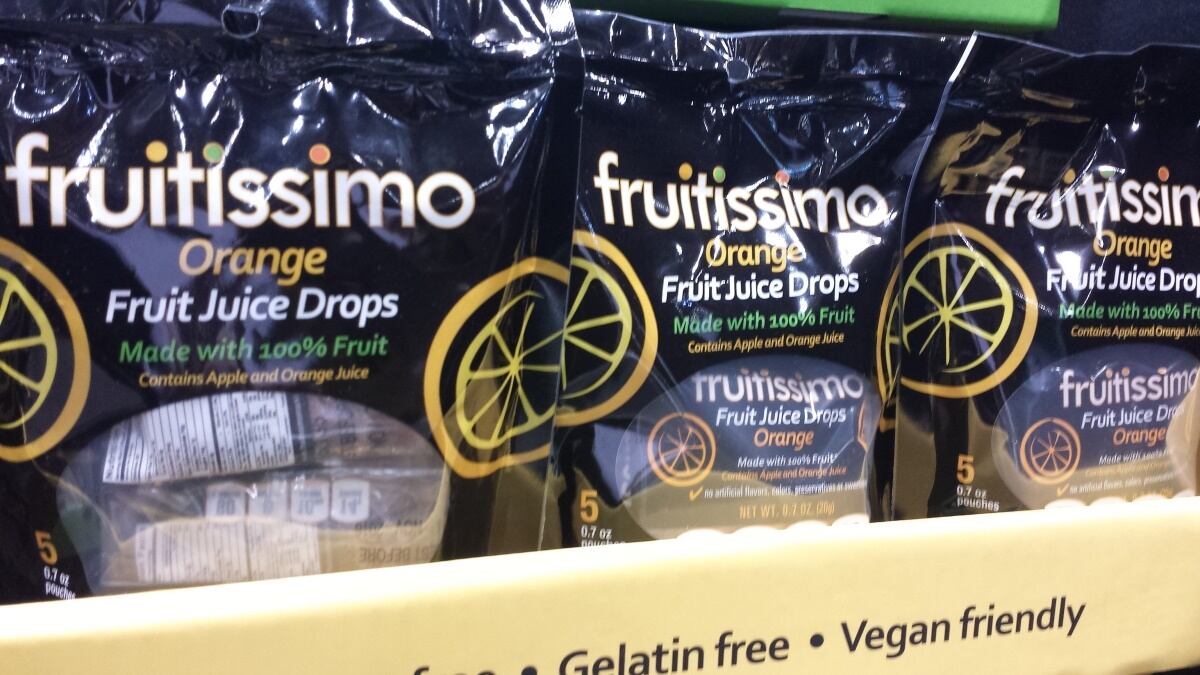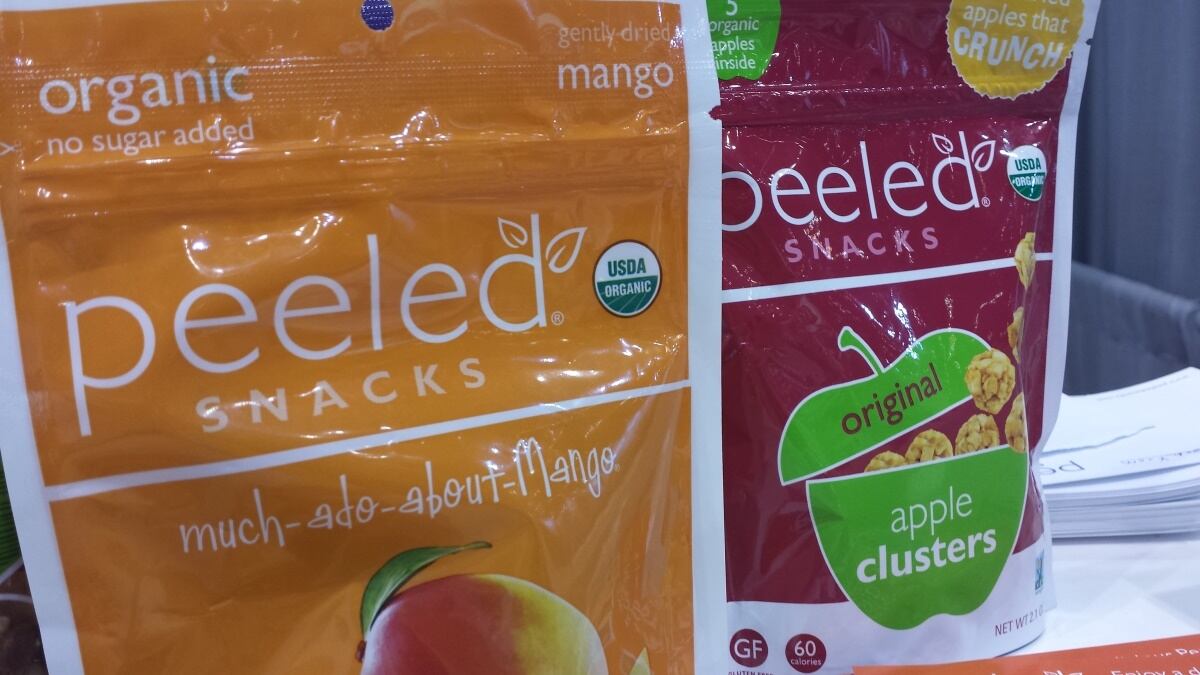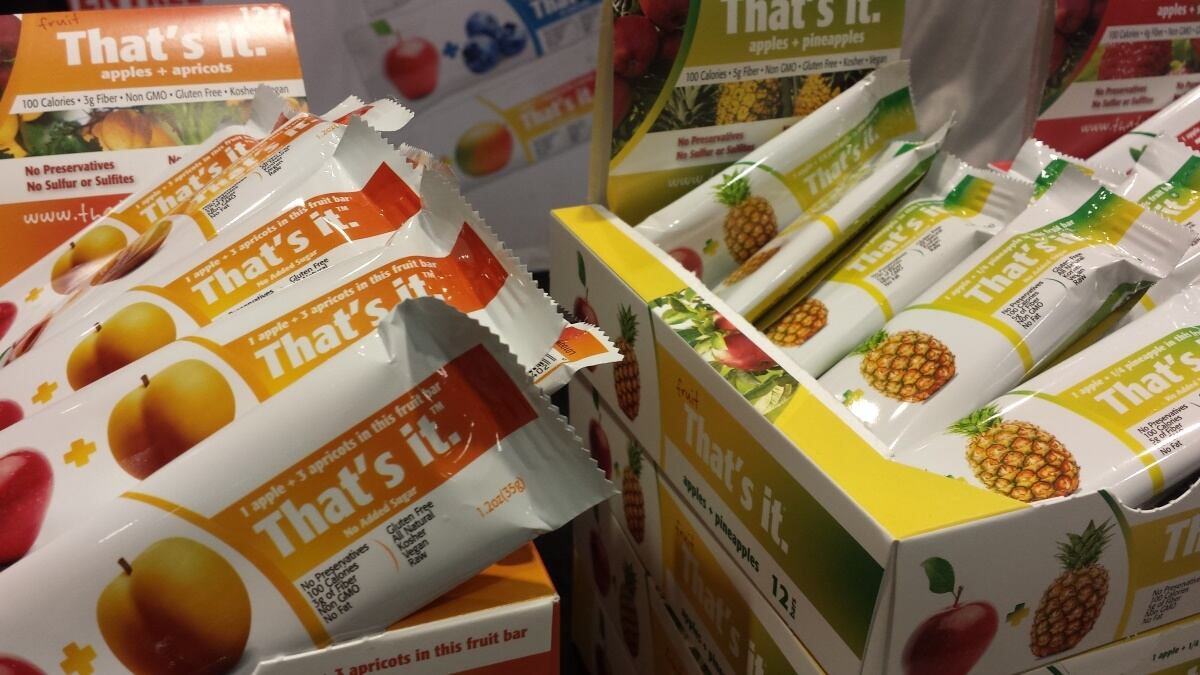“In the near future you’ll find a lot of cleaner ingredients; a lot less preservatives; a lot less ingredients in the product. People just want, you know, fruit,” Donny Edson, director of Smirk’s, told BakeryandSnacks.com at Sweets & Snacks Expo 2015.
Miriam Ryngler from That’s It said: “The consumer is more and more aware every day of what they’re eating and they really want to be able to go into the ingredient deck and understand what it is. So many companies tout ingredients you can pronounce and say, but there’s nothing more compelling than an ingredient deck that says ‘apples and cherries’ because not only can you pronounce it and say it, you actually know what it is.”
Just fruit?
However, Ian Kelleher, head of sales at Peeled Snacks, said unfortunately there were plenty of fruit snack firms heading down a very different route.
“I would hope that the future of fruit snacking is fewer ingredients; closer to fruits and finding ways to deliver it without tarnishing it, but I see companies where fruit is more of a marketing concept than an ingredient,” he said.
Johnathan Brownbill, North America sales director for Paradise Fruits, agreed. “The demand for pure fruit is becoming higher and higher and we found it necessary to come to the marketplace with our pure fruits because the impure fruits on the marketplace, we feel, don’t represent value for money and quality that the general public deserves. They’ve got fillers, additives; they’ve got fortifications in some way, shape or form that we don’t agree with.”

The public, he said, wanted better-for-you fruit snack products and it was industry’s responsibility to give them that.
Mark Devencenzi, national sales director at SunRidge Farms, said organic produce was proving extremely popular because of these ideals.
“A lot of mangos, papaya-type varieties that come from overseas, particularly Asia, usually have sugar added or a sugar bath they go through because it helps with preservation. But we’re seeing a lot of growth interest with organic, dried mango – that’s just mango and nothing else,” he said.
“…People want to eat better and a lot of people think by staying away from chemicals and preservatives, you’re going to have a longer life and a better life.”
Added cost
However, as more fruit snack makers moved towards using less ingredients, Edson from Smirk’s said there were cost implications.
“Obviously if you soak fruit in something it makes it less expensive versus just the dried fruit because in the regular fruit there are no fillers or anything to add volume to it,” he said.
In addition, he said cost concerns meant competition was more important. Smirk’s, for example, faced supply challenges in South America with its organic apple supply because fruit juice makers tended to buy up most of the raw fruit - “it’s organic – there’s only so much of it”.

Kelleher from Peeled Snacks said the fruit market was particularly vulnerable to climate change.
“The commodity market is getting more aggressive in the face of environmental calamity… The biggest challenge in the food market in the years to come will be in reliability of supply and we will all be fighting for it.”
Edson agreed: “We’ve seen it with coconut in the last few years when there was a typhoon in the Philippines. Coconut got so popular over the last two or three years, especially coconut oil, and supply got a little tight.”
Better than whole fruit?
Beyond supply issues, fruit makers were also up against the whole fruit category in competition terms – why would consumers choose packaged fruit over fresh?
“Logistically for everywhere in the world, you don’t need to refrigerate it; it lasts. There are no temperature restrictions or constraints so, you know, for lunches or to put in your car or travel with it’s the perfect food,” said Ryngler from That’s It.

Ian Kelleher, head of sales at Peeled Snacks, agreed that the long shelf life drew in consumers.
“Indeed, I want kids to eat apples; in many cases I would prefer the kit to eat the apple than my product. But my product and others in the sector have a much longer shelf life along with a different texture – it’s a different snacking experience.”
Edson from Smirk’s added fruit snacks also had the fun factor. “It’s about the convenience but they’re also kind of fun. I think you’re seeing a lot more people using them as ingredients at home to cook with – for salads or sauces, but also a lot of people like the make their own cereals and granolas now,” he said.
